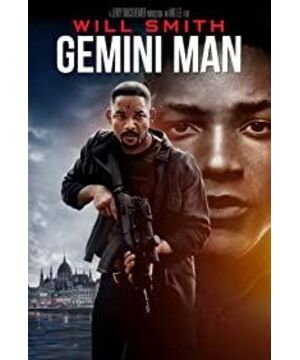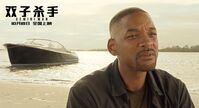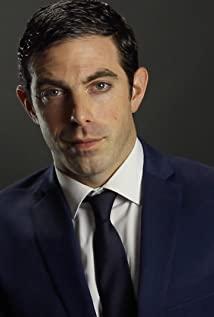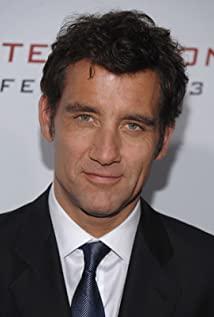Ang Lee is a very authoritative film director. Although his latest "Gemini Man" has the stylized packaging of an action movie, the core of the film is still Ang Lee's unique stylized feature. When many people mention Ang Lee's style characteristics, they often talk about the father-son relationship, and even think that the father-son relationship is a typical oriental theme. But in fact, the patriarchal complex is also an emotional theme that often appears in Western literature. Therefore, the relationship between father and son is actually no difference between Eastern and Western cultures. The real difference is how the parent-child relationship is expressed. What truly reflects a director's style is not what story the director tells, but how the director tells the story. Ang Lee's true style, in my opinion, is the equivocal, evasive, ambiguous, and ultimately tolerant and kind-hearted attitude with which he tells the story of the father-son relationship. This attitude, in my opinion, is a typical expression of the East, and only Ang Lee can use a cinematic language to present this attitude in his films.
The film "Gemini Killer" is an action film of secret agents in terms of story type. It tells the story of Henry, an agent with a sense of justice who falls into a huge conspiracy. Because of being framed, he has to flee and finally defeat evil. , revealing the truth of the story. Such a story is more likely to remind audiences of action movies such as "The Bourne Bourne". But Ang Lee subtly incorporates the theme of the father-son relationship in such a secret agent action movie. Of course, there are father-son relationships in many Hollywood action movies, but the final destination is the catharsis of the father-killing complex. In Ang Lee's "Gemini Man", although the father is indeed one of the evil forces, in the end, the son does not directly kill the father. Ang Lee used a little trick to playfully express the paternity complex in Hollywood commercials in a darkly humorous way. I believe that when the audience sees the final ending of "Gemini Man", they will sincerely admire Ang Lee's cleverness, which not only caters to the routine of Hollywood type films, but at the same time expresses self-resistance in such a routine.
"Two fathers" and "two choices" are the Tai Chi techniques that Ang Lee is best at. In "Gemini Man", the young version of Will Smith's Xiao Ke has two spiritual fathers: the middle-aged version of Will Smith's justice agent Henry and Clive Owen's villain Clay. Both spiritual fathers try to persuade Xiao Ke to take their expected life path, and Xiao Ke is tossed between the two spiritual fathers. In Ang Lee's early "Pushing Hands" and "The Wedding Banquet", the father representing Eastern culture and the lover representing Western culture often put their sons in a dilemma and do not know how to choose. And the solution that Ang Lee finally gave is also a unique solution to the East: no choice, because both the father and the lover love their son, so both sides finally gave in and solved the problem in an unresolved way. . The later "Diet Men and Women" is the end of Ang Lee's "Father Trilogy", and it is also a landmark film of Ang Lee's fully mature style. The film uses the different choices of the father's three daughters to complete Ang Lee's relationship with the Oriental family. deconstruction and reconstruction. Among them, Zhu Jiaqian, the second daughter who is the most westernized, wants to leave the family the most, and has the most acute conflict with her father, finally gave up the opportunity to go to the United States and stayed to take care of her father. In the film "Crouching Tiger, Hidden Dragon" that won Ang Lee's Oscar for Best Foreign Language Film for the first time, Yu Jiaolong, the core character of the story, although she does not have two fathers, has two masters who teach swordsmanship: The blue-eyed fox and Li Mubai. The blue-eyed fox indulges Yu Jiaolong's reckless behavior, while Li Mubai has been trying to restrain Yu Jiaolong with etiquette. At the end of "Crouching Tiger, Hidden Dragon", Li An did not let Yu Jiaolong answer this multiple-choice question, but directly let the two masters, Blue-eyed Fox and Li Mubai, die together. When it comes to the film "The Fantastic Drifting of Pi", Ang Lee simply threw the multiple-choice question to the audience: Of the two stories told by Pi, which one do you choose to believe?
In the dilemma, there is never a standard answer, and there can only be tolerance and compromise with a gentle attitude. This is Ang Lee's answer. In fact, it is also the longest method adopted by Eastern civilization when dealing with family and social conflicts. When Western-style civilization deals with the contradiction of binary opposition, it must be divided into right and wrong. Therefore, in Western-style commercial genre films, the appearance of binary contradiction must be the opposition between good and evil, and the final outcome is that justice defeats evil. If When the righteous and the evil are in a father-son relationship, the ultimate resolution of the conflict is the release of the patriarchy complex. "Gemini Man" itself is also Ang Lee's tai chi between the delicate emotional expression of this oriental art film and the scripting routine of western commercial films. The biggest villain in the movie, Clay, is undoubtedly an evil and cruel villain, but his feelings for his adopted son Xiaoke are sincere. Ang Lee's attitude towards the image of "father" has always been contradictory and vague. In the "Father Trilogy", the image of the father is stubborn, arrogant and unreasonable, full of the oppression and torture of the children by the patriarchal culture; but at the same time, the father is also vulnerable and helpless, and the more life choices he faces in the face of his children. It is becoming more and more helpless and powerless, which is also the most intuitive feeling of the children to the father who is getting old. Ang Lee's contradictory attitude of love and hate towards his father makes the emotions in his films extremely delicate and moving. Every time Xiao Ke faces his adoptive father Clay in "Gemini Man", the huge emotional tension makes the film suddenly withdraw from a traditional Hollywood commercial genre and become a typical Ang Lee style movie. It is precisely because of this that Ang Lee will definitely not let Xiao Ke kill his adoptive father by himself in the end, to complete the emotional catharsis of the Western father-killing complex, but choose another way to both cater to and resist Hollywood's genre film routine.
Many people have already technically analyzed the special features of "Gemini Man" with 120 frames + 4K + 3D, and I don't need to repeat it again, so I want to discuss from the theme and emotion, why did Ang Lee choose this of technical expression. On the one hand, of course, it is because of Ang Lee's curiosity about the possibility of future film expressions, but on the other hand, I think it is how Ang Ang understands the matter of "choice". We often say that a movie is a dream, so the dream should not be too clear. Too clear a dream can easily wake people up, making it difficult for people to be completely immersed in the dream. From this perspective, although the 120-frame technology allows the audience to be immersed in the world of the movie, it actually increases the difficulty of the audience's emotional projection into the movie story, because the world is too clear to no longer Like a dream of the audience. But for Ang Lee, his goal may itself be to stop the audience from treating the movie as just a fantasy, but as reality. In the story of "Gemini Man", if you put aside the sci-fi setting and look at the story from the perspective of psychoanalysis, then this film is actually about the middle-aged agent Henry, how to reshape himself past stories. The middle-aged Henry made the young self go a different life path by giving the young self a chance to choose again. This has to remind me of Ang Lee's "The Fantastic Drifting of Pi", how you make choices determines your own life.
It is very interesting that Ang Lee often throws multiple-choice questions to the audience and the protagonists in his films, but Ang Ang rarely answers these multiple-choice questions. The right to answer is left to the audience. If we really make choices, can we really decide our own lives? In Shuji Terayama's film "Pastoral Festival of the Dead", the protagonist recreates his past in both false and real memories. In fact, human memories are like clips in a movie. We always tend to remember those life fragments that are meaningful to us, and forget those same real life pasts. In the end, these meaningful life fragments are superimposed on the Together, they form the theme of our lives. From this point of view, life is actually very similar to movies, so movies are no longer just a dream, but a reality of life. The 120-frame+4K+3D technology in Ang Lee's films broadens the expression of film language in this sense. When you watch the movie "Gemini Man", you will really believe that young Xiao Ke has started a new life, not just a dream of middle-aged agent Henry.
All in all, "Gemini Man" is a movie worth watching in person. It completes Ang Lee's unique thinking within the framework of Hollywood commercial genre films, and also broadens the language expression of the film.
View more about Gemini Man reviews











